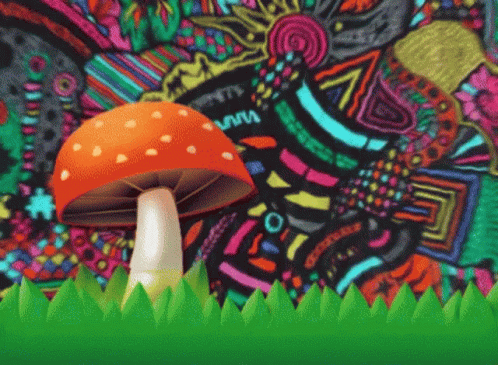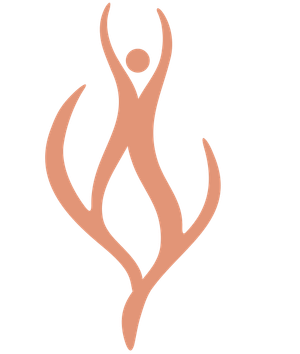In healing, the fusion of traditional knowledge with scientific validation has led to a resurgence of interest in edible mushrooms' therapeutic properties.
As an ancient remedy, mushrooms have been revered in many cultures for their potential to enhance well-being and address various ailments. They have occupied a significant place in traditional medicine, where holistic approaches prioritized natural and whole-body treatments.

Historical records and practices, particularly in regions like ancient China, have documented the use of mushrooms to support health across various dimensions, from boosting immunity to relieving stress.
Modern medicine, with its rigorous scientific methods, has begun to shed light on the empirical evidence supporting these traditional claims. Advancements in pharmacology and biochemistry allow for a detailed analysis of the constituents found within mushrooms, revealing a range of bioactive compounds with potential medicinal benefits.
This scientific scrutiny has corroborated the holistic valor of mushrooms, as studies show their role in preventive healthcare and their ability to complement conventional medical treatments.

The collaboration between the wisdom of ancient remedies and the precision of modern science has warranted a deeper exploration into the healing powers of edible mushrooms.

Researchers continue to explore their pharmacological potential, hinting at a future where the integration of mushrooms into health practices is informed by a synergy of historical use and contemporary scientific findings.
Historical Use of Edible Mushrooms in Traditional Healing Practices
Edible mushrooms have long been intertwined with health and healing across a multitude of cultures. They have played integral roles in Traditional Chinese Medicine and Ayurveda, and were reputed components of early medical practices.
Ancient Civilizations and Mushroom Medicine
In Traditional Chinese Medicine (TCM), mushrooms are essential in addressing health imbalances and enhancing qi, or life force. Reishi mushrooms, for instance, were popular for their believed lifespan-extending properties.
These mushrooms were often categorized under the TCM concept of fu zheng, which means to support the body's natural resistance.

Ayurveda, the ancient healing system from India, utilizes edible mushrooms to balance the doshas—the bodily humors. Certain mushrooms were selected for their properties to regulate physiological processes and promote mental well-being. This was part of a holistic approach to health, considering the mind-body-spirit connection.
Prominent Figures and Historical Accounts
Hippocrates, the Greek physician dubbed the "Father of Medicine," is known to have used mushrooms for their anti-inflammatory properties. While detailed historical accounts are scarce, references suggest mushrooms were utilized in the treatment of wounds and other ailments.
Ancestors in various cultures relied on both empirical observations and transmitted knowledge to recognize the medicinal properties of mushrooms. Detailed accounts and remedies were often kept by herbalists and healers, treating a wide range of conditions with mushroom-derived concoctions.
Scientific Insights into Medicinal Mushrooms and Their Health Benefits
Edible mushrooms have been identified to contain numerous bioactive compounds that offer therapeutic health benefits, including bolstering the immune system and potentially improving cognitive function and mental health.
Bioactive Compounds and Medicinal Properties
Medicinal mushrooms are rich in bioactive compounds such as polysaccharides, triterpenes, and phenolic compounds. Studies have shown that these compounds contribute to the medicinal properties of mushrooms, including their antioxidant, antitumor, and antimicrobial effects.
For instance, the polysaccharides in mushrooms like beta-glucans have been observed to stimulate the immune system and exhibit anticancer activities.
- Polysaccharides: Enhance immune response and may have anticancer effects.
- Triterpenes: Exhibit potential antihyperlipidemic and hepatoprotective effects.
- Phenolic Compounds: Powerful antioxidants that protect against cellular damage.

Ultimate Cell Energy
Unlock your brain's potential with Ultimate Cell Energy. This unique formula is crafted to boost brain performance and maintain brain health, so you can stay sharp and focused every day.
Immune System Enhancement and Anti-Inflammatory Effects
The immune-modulating effects of medicinal mushrooms are significant, with certain species known to both enhance innate immune responses and modulate adaptive immunity.
They can prevent infections and operate as anti-inflammatory agents anti-inflammatory, with compounds like ergothioneine demonstrating protective effects on cells and reducing inflammatory reactions in the body.
- Ergothioneine: A compound found in mushrooms that helps reduce inflammation.
- Beta-glucans: Stimulate immune cell activity and improve immune defense mechanisms.

Mushrooms and Cognitive Function, Mental Health
Recent research suggests that medicinal mushrooms may also be beneficial for cognitive function and mental health.
For example, Hericium erinaceus, commonly known as lion's mane mushroom, contains compounds that stimulate the production of nerve growth factor, potentially aiding in the repair of nerve cells and having implications for diseases like Alzheimer's.
Moreover, the potential benefits of mushrooms in relieving symptoms of anxiety and depression are under investigation, promising another avenue for natural support for mental health.
- Lion’s Mane Mushrooms: May support nerve growth and brain health.
- Reishi Mushrooms: Have been studied for potential effects on mood and well-being.
Integration of Mushroom Remedies in Modern Healthcare

Edible mushrooms are rapidly transitioning from alternative health realms to the forefront of modern healthcare, armed with substantial clinical evidence and widespread dietary incorporation. This integration reflects a rising confidence in fungal pharmacology backed by modern scientific methodologies.
Clinical Studies and Evidence-Based Medicine
Clinical studies have become a pivotal element in confirming the therapeutic potential of mushrooms in modern science.
Investigations conducted on various mushroom species have demonstrated immunomodulatory, anti-cancer, and anti-inflammatory properties.
For instance, the polysaccharides in shiitake mushrooms are studied for their effect on boosting the immune system.
This particular study exemplifies the scrutiny under which mushroom compounds are evaluated to ensure that their use in healthcare is justified by evidence-based medicine.
Mainstream Acceptance and Dietary Supplementation
Edible mushrooms have achieved a notable milestone in mainstream acceptance as a dietary supplement.
With scientific validation, healthcare providers increasingly acknowledge their advantages, inviting them into the realm of prescribed health supplements.
Popular fungi like reishi and cordyceps are now common in supplement aisles, reflecting their acceptance in mainstream healthcare.
These developments paint a clear picture of a synergy that bridges ancient wisdom with contemporary medical practices.
Exploring Specific Edible Mushrooms and Their Uses
Mushrooms offer a treasure trove of potential health benefits, each species housing unique compounds that modern science continues to investigate for their medicinal applications.
Reishi: The Mushroom of Immortality
Ganoderma lucidum, commonly known as Reishi, has a revered place in traditional Eastern remedies. This mushroom is believed to enhance longevity and overall health.
The mycelium and fruiting body of Reishi contain important bioactive molecules, including polysaccharides and triterpenoids, which research suggests can support immune function and possibly reduce fatigue.
Lion's Mane: A Brain-Boosting Fungus
Lion’s Mane, or Hericium erinaceus, is a mushroom that draws attention for its potential cognitive benefits.
Its bioactive substances, like hericenones and erinacines, may stimulate the production of nerve growth factors. Early studies imply that these compounds could aid in neural regeneration and might improve memory and focus.
Chaga: The Cancer-Fighting Birch Dweller
Inonotus obliquus, known as Chaga, grows predominantly on birch trees and has anti-inflammatory and antioxidant properties.
Its rich content of betulinic acid, derived from its birch host, has been studied for its potential to inhibit cancer cell growth.
Moreover, Chaga is a source of minerals and elements like selenium, which is integral for cellular health.
Adopting a Holistic Approach for Long-Term Well-Being
The fusion of ancient wisdom and modern science offers a powerful strategy for enhancing long-term well-being. This holistic approach underscores the importance of the mind-body-spirit connection and the role of natural healing through whole foods.
Balancing Modern and Traditional Techniques
In leveraging both modern medicine and traditional remedies, a balance can be achieved that may enhance healing and promote overall well-being.
For example, the study of edible mushrooms has shown that these fungi embody a wealth of health benefits, aligning with traditional practices that view them as potent natural healers.
Scientific research confirms their role in supporting the immune system and even reducing the risk of certain diseases.
Lifestyle Changes and Whole Foods
Incorporating whole foods like edible mushrooms into one's diet is part of a holistic approach to health. These nutrient-dense foods not only support physical health, but they are also associated with improved mental and spiritual well-being.
Small lifestyle changes, such as including a variety of mushrooms in meals, can have a profound effect on mind-body harmony. This, in turn, can improve long-term health.





